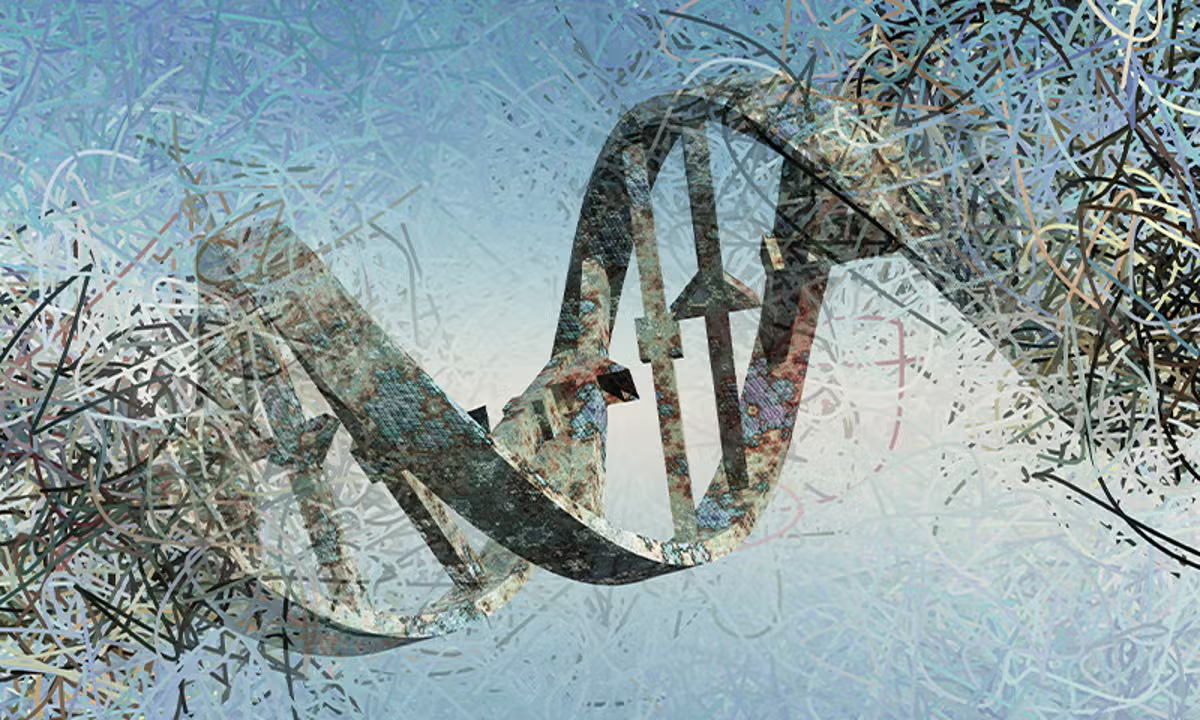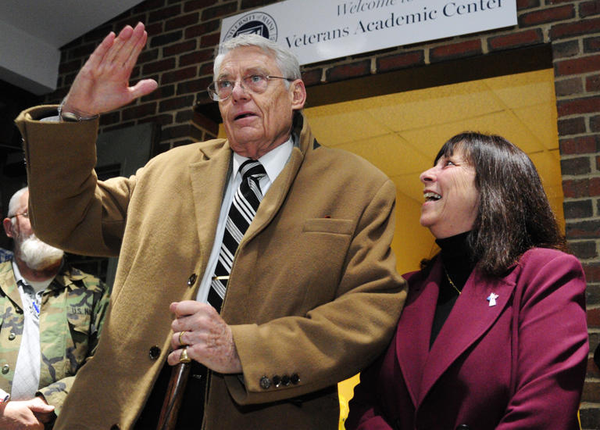A chemist investigates the potential causes of her leukemia

From Nautilus: "It’s impossible to know exactly when each of the five mutations happened. When, deep in my marrow, one thing after another went awry, and divided my life. Like all people who have been ill, my life is split into Before and After. Did a mutation occur the summer Before, when my gallbladder inexplicably started to act up, when I got a surprisingly terrible case of hand-foot-mouth virus for an adult? Perhaps one occurred in college, silently changing my future while I took my first organic chemistry lab, being careless with a solvent. Maybe the first mutation occurred when I was 2 years old, wearing footie pajamas soaked in flame retardant. Is it possible, even, that the mutation happened generations before I was even born, perhaps when my grandmother worked in her family’s dry-cleaning shop, the chemicals triggering a change deep in one of her cells that eventually lead to her death, my father’s, and nearly mine?"
Astronomers say they have detected a sign of life on a distant planet

From the New York Times: "A team of researchers is offering what it contends is the strongest indication yet of extraterrestrial life, not in our solar system but on a massive planet, known as K2-18b, that orbits a star 120 light-years from Earth. A repeated analysis of the exoplanet’s atmosphere suggests an abundance of a molecule that on Earth has only one known source: living organisms such as marine algae. “It is in no one’s interest to claim prematurely that we have detected life,” said Nikku Madhusudhan, an astronomer at the University of Cambridge and an author of the new study. Still, he said, the best explanation for his group’s observations is that K2-18b is covered with a warm ocean, brimming with life. “This is a revolutionary moment,” Dr. Madhusudhan said. “It’s the first time humanity has seen potential biosignatures on a habitable planet.” The study was published Wednesday in the Astrophysical Journal Letters."
In 1951 a Swedish man nicknamed The Steel Grandpa won a 1,000-mile bike race

From The Guardian: "In 1951, Gustaf Håkansson signed up for an endurance race traversing virtually the entirety of Sweden, only for his submission to be rejected because of his age. It was determined that the 66-year-old had neither the strength nor the stamina to compete with the 50 other racers half his age. Nevertheless, having ridden 600 miles to get to the starting line, Gustaf was there on race day in the saddle of his roadster complete with mudguards, a headlamp and panniers. Five days, five hours and 1,000 miles later, spectators waiting to cover the winner in eternal glory spotted a figure rounding the last corner. Expecting to embrace a 20 or 30-something slender man bending over the handlebars during the last push, the receiving crowd were understandably more than a little perplexed to watch a frail old gentleman wobble over the line on a rusty old roadster with a flat tyre. Not only that, but a full day ahead of the next rider."
Hi everyone! Mathew Ingram here. I am able to continue writing this newsletter in part because of your financial help and support, which you can do either through my Patreon or by upgrading your subscription to a monthly contribution. I enjoy gathering all of these links and sharing them with you, but it does take time, and your support makes it possible for me to do that. I also write a weekly newsletter of technology analysis called The Torment Nexus.
The inventor of Graham crackers hoped his flavorless recipe would curb sexual desires

From All That's Interesting: "Graham became convinced that America was lacking in morals, leading to widespread mental depravity and physical illness, and he swore that he would lead a good, moral life. Not only did he swear off alcohol, he also avoided sex for reasons other than procreation, warm baths, and even comfortable beds to keep things “pure” at all times. Eventually, Graham became known for speaking out against sexual excess. He thought sexual urges were making people mentally and physically ill. These urges included masturbation, which Graham described as a form of “self-pollution” that was to be avoided at all costs. He was also very interested in diets that focused on whole wheats. Graham believed that people should eat like Adam and Eve did, theorizing that indulging in rich, flavorful foods — think meats, fats, and anything with spices — could ignite carnal desires and lead individuals down a path of moral decay. In his view, a bland diet was the key to maintaining sexual purity and restraint."
The original Philadelphia got its name because Egyptian pharaoh Ptolemy II married his sister

From Wikipedia: "Philadelphia was a historical city located in the southern Levant, which was part of the Greek, Nabataean, Roman, and Byzantine realms between the third century BC and the seventh century AD. With the start of the Islamic era, the city regained its ancient name of Amman, eventually becoming the capital of Jordan. Around 255 BC, Rabbath Ammon was occupied and renamed Philadelphia by Ptolemy II to honor his own nickname, which he acquired after marrying his older sister Arsinoe II, with both called "Philadelphoi," from the Greek term meaning "sibling lovers." While sibling-marriage conformed to the traditional practice of Egyptian pharaohs, it was shocking to the Greeks, who considered it incestuous. Sotades, a poet who mocked the marriage, was exiled and assassinated. Arsinoe II was previously married to her half brother."
What it's like to interview twin sisters
holy shit there is nothing that can prepare you for when they cut to the interview pic.twitter.com/UA9iVIyCIm
— microplastics envelope filter (@DiabolicalSpuds) April 21, 2025
Acknowledgements: I find a lot of these links myself, but I also get some from other newsletters that I rely on as "serendipity engines," such as The Morning News from Rosecrans Baldwin and Andrew Womack, Jodi Ettenberg's Curious About Everything, Dan Lewis's Now I Know, Robert Cottrell and Caroline Crampton's The Browser, Clive Thompson's Linkfest, Noah Brier and Colin Nagy's Why Is This Interesting, Maria Popova's The Marginalian, Sheehan Quirke AKA The Cultural Tutor, the Smithsonian magazine, and JSTOR Daily. If you come across something interesting that you think should be included here, please feel free to email me at mathew @ mathewingram dot com



